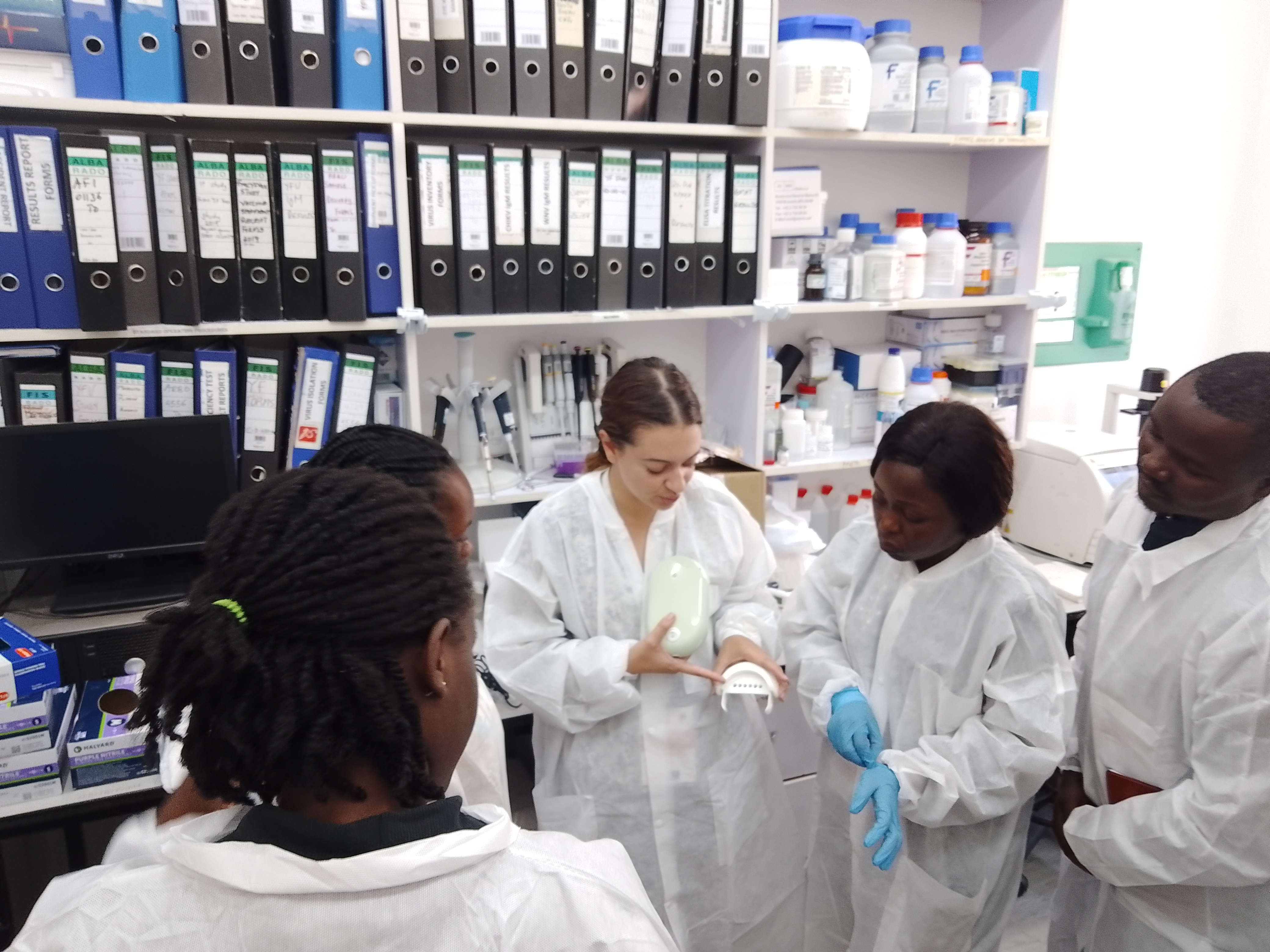
EMPOWERMENT: Ifakara researcher at viral diagnostic technologies training

Ifakara Health Institute researcher, Solomon Mwakasungula, was among participants of the training on modern viral diagnostic technologies hosted from October 10-12, 2022 by the Uganda Virus Institute (UVRI) under the umbrella of The Pan-African Network for Rapid Research, Response, Relief and Preparedness for Infectious Disease Epidemics (PANDORA-ID-NET).
Funded by the European and Developing Countries Clinical Trials (EDCTP), PANDORA-ID-NET is a novel multidisciplinary 'One Health' initiative that supports responses to emerging infections in Africa. Mwakasungula, who works with Ifakara research teams in Bagamoyo is one of the technical leads for PANDORA in Tanzania.
The training particularly focuses on the use of the PEBBLE device which is a molecular diagnostic platform for point of care testing in combination with a tech solution for capturing, concentration and isolation of viruses known as, “ApoH-technologies magnetic beads.”
Mwakasungula and colleagues used mouthwash and nasopharyngeal swabs samples collected from human suspected of COVID-19 diseases for training. All reagents for both technologies during the training were specific for diagnosis of SARS COV-2, the virus that causes COVID-19 diseases.
“Currently, the PEBBLE device and associated reagents has been optimized and verified for diagnosis of COVID-19 disease and influenza A. ApoH-Technologies have developed magnetic beads coated with protein that bind to micro-organisms in any kind of biological sample enhancing pathogens capture, concentration from large volume (diluted pathogens) to small volume (concentrated pathogens) for easy and efficiency of detection,” reports Mwakasungula on returning to Tanzania from the training.
“Solutions for capturing of virus (SARS COV-2) that causes COVID-19 from mouthwash and nasopharyngeal swabs have been validated and were used during the training. The technology also offers validated solutions for capture of bacteria that cause infectious diseases,” he explained.
Experts believe, combining the two technologies offers a robust, point of care, easy to use, and efficient molecular diagnostics methods for emerging and re-emerging infectious diseases and effort are underway to develop and validate more solutions for diagnosis of other pathogens including but not limited to malaria and TB.
